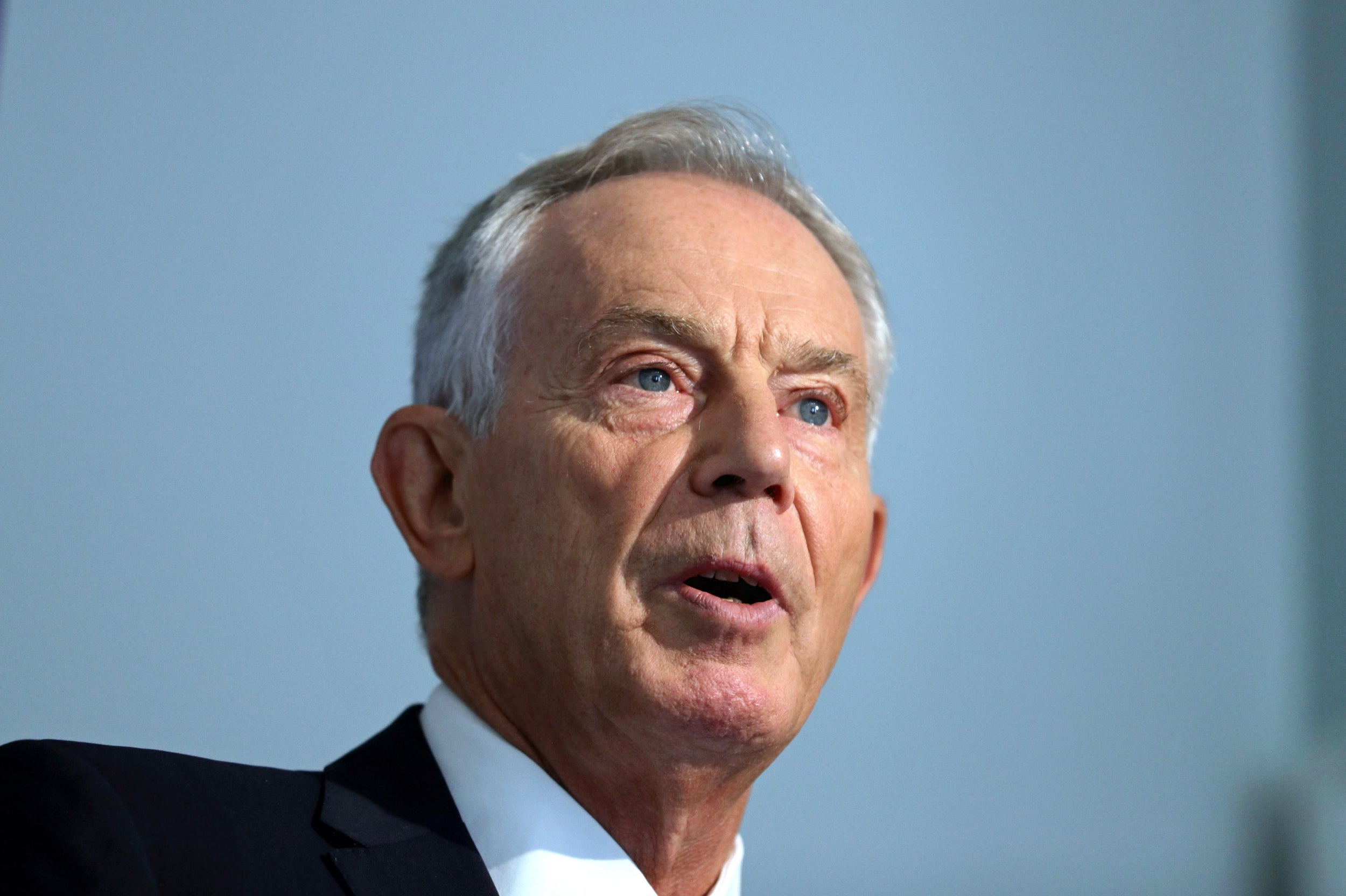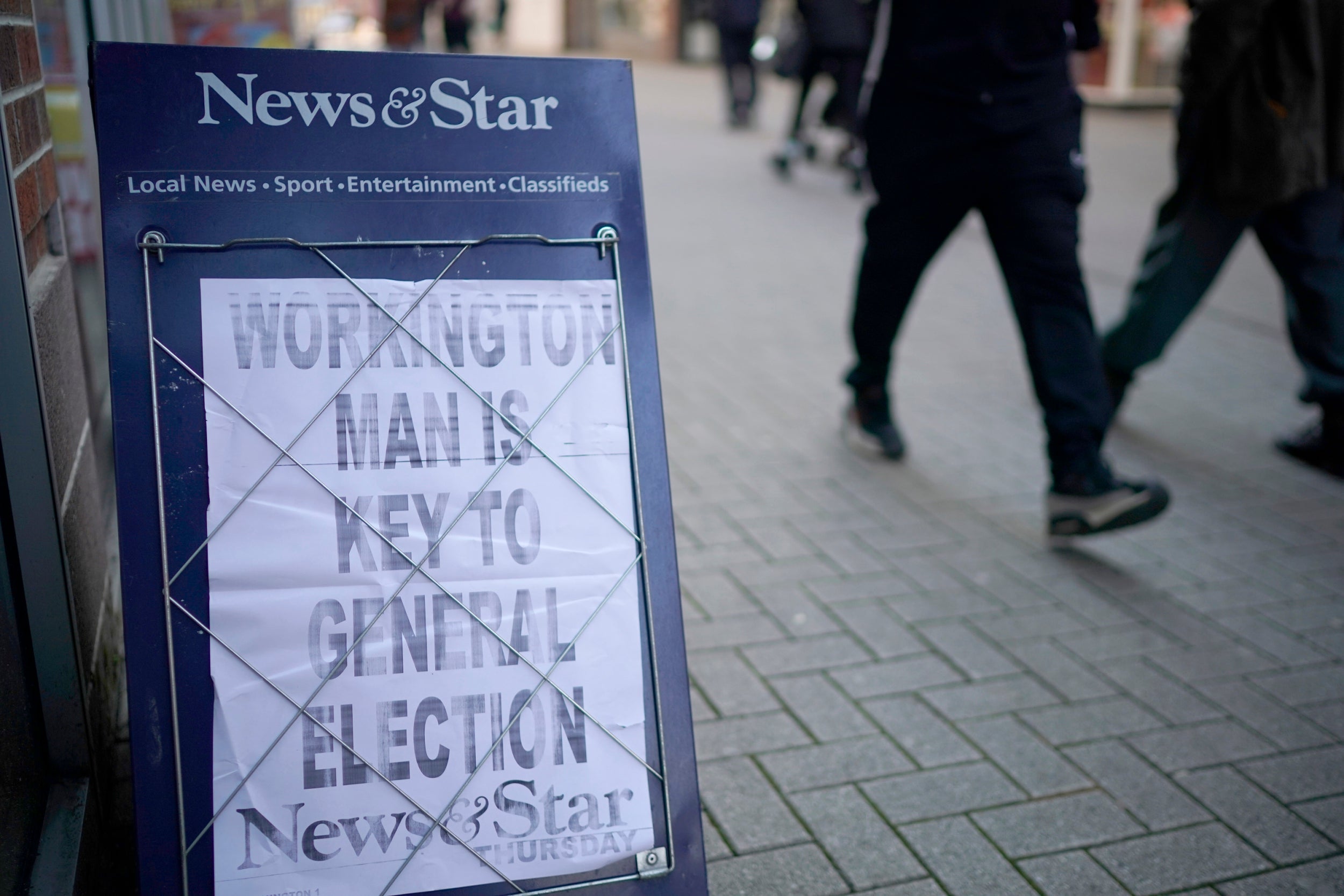General election post mortem delivers scathing judgment on Jeremy Corbyn’s leadership
Former prime minister Tony Blair warns party risks being 'replaced' as serious competitor for power
Your support helps us to tell the story
From reproductive rights to climate change to Big Tech, The Independent is on the ground when the story is developing. Whether it's investigating the financials of Elon Musk's pro-Trump PAC or producing our latest documentary, 'The A Word', which shines a light on the American women fighting for reproductive rights, we know how important it is to parse out the facts from the messaging.
At such a critical moment in US history, we need reporters on the ground. Your donation allows us to keep sending journalists to speak to both sides of the story.
The Independent is trusted by Americans across the entire political spectrum. And unlike many other quality news outlets, we choose not to lock Americans out of our reporting and analysis with paywalls. We believe quality journalism should be available to everyone, paid for by those who can afford it.
Your support makes all the difference.The first major post-mortem of Labour’s disastrous general election has delivered a scathing verdict on a “lethal mix” of weak leadership and extreme politics under Jeremy Corbyn which drove millions of the party's traditional voters into the arms of the Tories.
The report, commissioned by former leader Tony Blair, said that Corbyn’s removal alone will not be enough to restore the party’s fortunes. Labour must also discard his “sectarian ultra-left politics” before it can begin the journey back from the political wilderness.
Launching the report in London on Wednesday, Mr Blair will warn that Labour faces being eclipsed as a serious competitor for power if it fails to renew itself.
And he will say that any attempt by the current leadership to “whitewash” the reality of the debacle would cause “irreparable damage” to Labour’s fortunes.
“This election was no ordinary defeat for Labour,” three-time election-winner Blair will say. “It marks a moment in history.
“The choice for Labour is to renew itself as the serious, progressive, non-Conservative competitor for power in British politics; or retreat from such an ambition, in which case over time it will be replaced.”
Mr Corbyn has called for a process of reflection following Thursday’s defeat, which saw Labour shed 59 seats including constituencies held by the party for generations, in its worst performance since 1935.
But Mr Blair will say: “At one level, sure, let's have a period of ‘reflection’.
“But any attempt to whitewash this defeat, pretend it is something other than it is, or the consequence of something other than the obvious, will cause irreparable damage to our relationship with the electorate.”
The report by pollster Peter Kellner and former government adviser Patrick Loughran for the Tony Blair Institute, is named Northern Discomfort, and looks at the causes behind the loss to Tories of Labour strongholds across the north of England, like Blyth Valley, Bolsover, Hartlepool, Workington and Blair’s own former seat of Sedgefield.
Its title echoes the Southern Discomfort report compiled following Labour’s fourth successive election defeat in 1992, widely credited with sowing the seeds for the revival of the party’s fortunes as New Labour under Mr Blair.
Drawing on surveys of voters and focus groups in Labour heartland areas - Bishop Auckland, Walsall and Bassetlaw - the report rejected the claims of Mr Corbyn and his inner circle that Brexit was to blame for drowning out the party’s message.

Blaming Brexit “would blind the party to the real reasons for the scale, consequences and reasons for this historic defeat”, the report found.
“It was the leadership of Jeremy Corbyn and the politics he represents that caused the real rupture with long-held loyalties.”
The report found a common feeling that Labour was “no longer on the side of traditional working-class voters” and was “no longer providing an acceptable alternative to the Tories”.
A “deep distaste” for Mr Corbyn and his politics had “seeped into the bones of voters’ attitudes” since the previous elections in 2017, when he was relatively unknown to voters.
And in findings which the authors described as “truly shocking”, the report found “visceral” distrust of Mr Corbyn’s ability to stand up and defend Britain, with just 24 per cent of voters - and only 61 per cent of those who stuck with Labour - describing him as “patriotic”.
It quoted focus group members - all previous Labour voters - as saying “the IRA were terrorists but Corbyn was happy to sit down with them” and “Do I trust him to keep my country safe? No I don’t”.
While a number of Labour’s policies were popular, the report found voters did not believe the party would be able to deliver them effectively. Some 60 per cent of those who defected to other parties - and almost one in five of those who stayed with Labour - said they did not trust Corbyn’s team to spend money wisely.
Tellingly, focus groups members mentioned the offer of free broadband “not as a cause for enthusiasm but as a tipping point for the lack of seriousness of Labour’s free offers”.

“It’s just ludicrous,” one woman in a Worksop focus group said. “Where did they pull that from? They’re the sort of things that make them look daft.”
The report found that since its last election victory in 2005, Labour had already shed thousands of voters in its core areas, who Mr Corbyn needed to win back to stand a chance of reaching 10 Downing Street.
“Instead, his leadership and his political strategy achieved precisely the opposite,” the report said. “They drove even more traditional Labour supporters away from the party. What is more, a significant minority even of those who stayed did so despite its leadership and policy positions, not because of them.”
Far from Labour’s problems being caused by Boris Johnson broadening Conservatives’ appeal, it was the party’s own leadership and policies which had driven its core voters away, the report found.
In a poll for the report, some 34 per cent of those who voted Labour said they disliked Corbyn, suggesting that as many as 3.5 million of the 10.3 million people who backed the party last week did so in spite of its leader, not because of him.
By more than two-to-one, voters who abandoned Labour said that its policies were “too extreme” - and almost a quarter (24 per cent) of those who stayed with the party agreed.
To give Labour a chance of returning to power, a new leader must not only reverse the impression that the party was “out-of-touch, extreme, unpatriotic and incompetent” but also construct “a compelling narrative of what is wrong with Britain and how to put it right”, the report found.

Join our commenting forum
Join thought-provoking conversations, follow other Independent readers and see their replies
Comments